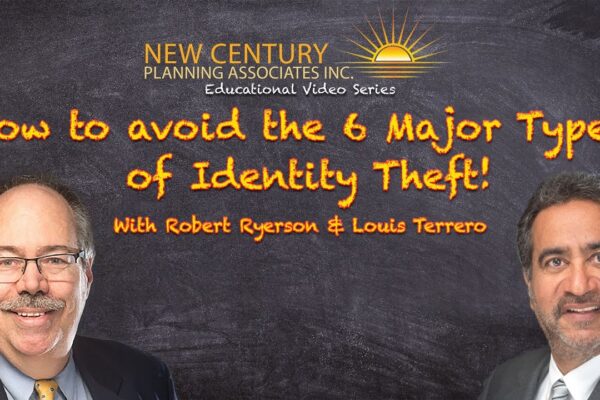A Look at Cryptocurrency as an Investment
Cryptocurrency is swiftly becoming a well-known aspect of our daily lives. Many people expect that it will only become more ubiquitous in the future, potentially evolving into a viable “digital money” alternative to physical currency.
As it grows in popularity, people are looking at new ways to incorporate cryptocurrency into their finances. For many people, cryptocurrency presents a new opportunity to add diversity to their investment portfolios, even including it in their retirement savings.
Perhaps you have been considering adding cryptocurrency to your own retirement portfolio. Here is a bit more information about what you need to know before getting started with cryptocurrency investments.
here Are Many Different Types of CryptoCurrency
There are a number of different types of cryptocurrencies available, with more being developed every day. Some of the most well-known varieties of cryptocurrency today are Bitcoin, Litecoin, and Ethereum, but there are hundreds more available as well.
Though blockchain technology and Bitcoin are very closely related, not every cryptocurrency on the market uses a blockchain. However, most of them do use some form of a decentralized ledger and cryptography to prevent against fraud.
Before choosing a cryptocurrency to invest in, be sure you do your research so that you understand just how your chosen cryptocurrency works and what it was created to do. Different cryptocurrencies have different purposes, and it is always wise to stay as informed as possible about your potential investments.
 Why Invest in Cryptocurrency?
Why Invest in Cryptocurrency?
So, why would you choose to invest in a cryptocurrency anyway? Most financial advisors would encourage you to diversify your portfolio in order to get the most out of your investments. That is because putting all of your finances in one asset class can be a recipe for disaster if that particular opportunity goes south.
Suppose all your money is invested in just one stock on the stock market. What happens if the market takes a downward turn and your stock begins to lose value? You could end up losing everything, and many do if they have not diversified their portfolios. Similarly, what if you invest exclusively in stocks and there is a stock market crash? Different asset classes can fall asleep and underperform for extended periods of time. For example, stocks regularly go through a “lost decade” or more.
Financial advisors typically suggest a mixture of stocks, bonds, mutual funds, ETFs, and other types of investments, such as precious metals, for the most well-rounded approach to investing. When you use this diversification strategy, you likely won’t lose as much money in the event of a market downturn.
Cryptocurrencies are yet another strategy you can use to diversify your investments. If you’re looking for a new type of investment, then purchasing some cryptocurrencies might be worthwhile.
Remember though, that just like any other type of investment, it’s important to approach cryptocurrencies with caution. Never invest more money than you can afford to lose, as it’s nearly impossible to predict how any one investment might perform.
It can be tempting to put a lot of money into cryptocurrencies, especially in light of the memories of overnight millionaires that invested in Bitcoin early. Though you might be hoping for a repeat of that scenario, it’s not likely. Keep your investments to an amount you can handle losing if it goes badly.
Getting Started
Once you’ve decided to invest in cryptocurrencies, you may be wondering how to go about purchasing them. There are a few options that can allow you to buy different cryptocurrencies. The most popular way to purchase cryptocurrencies is through a cryptocurrency exchange.
Many different exchanges exist, and most do charge fees for purchases or withdrawals, often a percentage of the purchase price. Check around to different cryptocurrency exchanges to find the options that work best for you.
If you are looking for a specific cryptocurrency, know that not all exchanges carry all types. Be sure to double check that the cryptocurrency you are hoping to purchase is offered before joining an exchange.
You can also go through a traditional broker to purchase cryptocurrencies, though those are not as common yet as cryptocurrency exchanges. The first investment broker in the mainstream that allowed for the buying and selling of cryptocurrencies was Robinhood, though more now offer that service today.
Robinhood charges no fees for trades in cryptocurrencies, just like in its stock-trading platform. Tradestation and eToro are two other options. Many other traditional brokers have announced plans to start offering cryptocurrency trades in the future.
If you want to buy and hold cryptocurrencies in an IRA or ROTH IRA, you will need to find a custodian who will allow or offer that as a choice. At this time, the larger IRA custodians, such as Fidelity, Vanguard, Schwab, and TD Ameritrade do not offer cryptos as an investment choice. There are a number of so-called “Self-Directed IRA” custodians who do, however.
After purchasing your cryptocurrency, you will need to decide how you’re going to store it. Typically, people store cryptocurrency either in hot or cold wallets. Hot wallets are much easier to access but are generally considered to be less secure than cold wallets. Many exchanges that host hot wallets have been vulnerable to hackers in the past.
A hot wallet stores cryptocurrency with an exchange or third-party provider, accessible easily through the internet or through a mobile app. Cold wallets, on the other hand, are small portable devices that are encrypted, allowing you to download, store, and carry your cryptocurrency with you.
Cryptocurrency could be a great addition to your investment portfolio but consider carefully before making your purchase.
Author
Robert Ryerson
Although Robert M. Ryerson completed all the necessary requirements to earn bachelor of arts degrees in both English and economics at Rutgers University, college policy at the time prohibited the issuance of dual degrees. As a result, he graduated from Rutgers with a single bachelor of arts in economics before finding employment as a stockbroker with Shearson Lehman American Express in New York City 1984. Robert M. Ryerson has since established himself as a respected estate administrator and legacy planner. In addition to his economics degree from Rutgers, Mr. Ryerson holds several professional designations including Retirement Income Certified Professional (RICP)®; Certified In Long Term Care (CLTC)®; Certified Financial Fiduciary (CFF)®, and Certified Identity Theft Risk Magenament Specialist (CITRMS)®. He has shared his knowledge on the subject of identity theft as the author of the book What’s The Deal With Identity Theft?: A Plain-English Look at Our Fastest Growing Crime. He has also covered identity theft issues directly for students as the instructor of the adult education course Understanding Identity Theft: Our Fastest Growing Crime.






